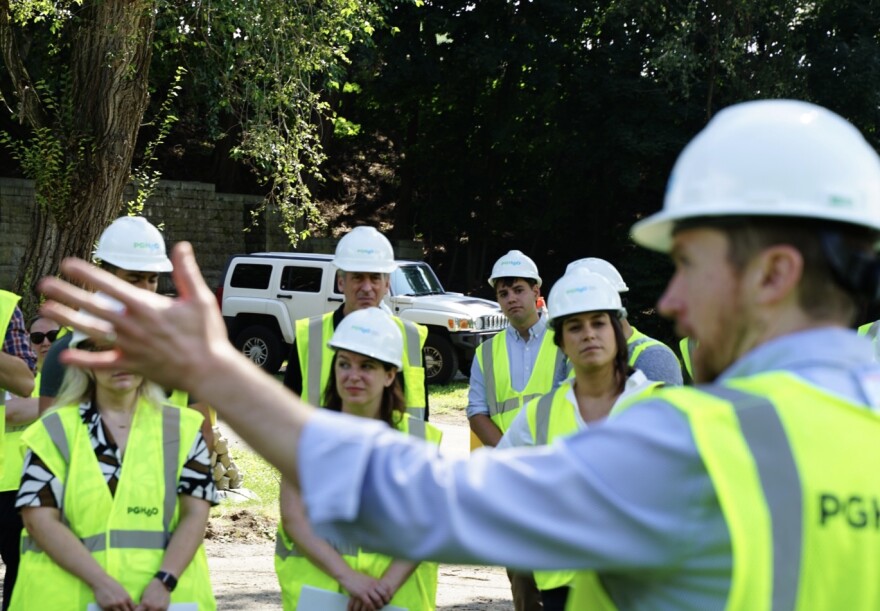The Pittsburgh Water and Sewer Authority is receiving record amounts of funding from the Commonwealth of Pennsylvania to build a backup system for its drinking water system.
The authority is in the middle of spending $470 million to provide additional redundancy to the city’s drinking water supply.
In July, the state awarded PWSA $209 million in PennVest loans to do this work. This loan was the largest ever granted by PennVest. This loan is provided at such a low interest rate that PWSA expects it will save the authority more than $100 million during the life of the loan.
The new loan eclipses the previous largest Pennvest loan, a $65 million loan also granted to PWSA in 2020 to replace lead service lines. In total, the state has awarded $400 million in loans to PWSA since 2018, as the Department of Environmental Protection has required PWSA to upgrade its drinking water infrastructure and reduce the amount of lead in its system.
On Friday state lawmakers were on-hand to view the latest construction work being supported by state loans at Highland Park, including Rep. Emily Kinkead, Rep. Sara Innamorato and Rep. Summer Lee.
What are they replacing?
At the center of PWSA’s water treatment plant in Aspinwall is a large tank of water called “the clearwell.” The clearwell is one of the final steps to treat the city's drinking water. It’s the tank where chlorine is added and mixed with the water to kill bacteria and pathogens before it's pumped out and into homes.
The problem is that the clearwell is nearly 100 years old, and if something were to happen to it, the city’s entire drinking water system could be in jeopardy. But for now, there is no way to make repairs to the clearwell while it’s still in operation.

PWSA looked at a variety of options to provide disinfection while the clearwell is repaired and improved. Some of those options involved putting in temporary pumps and infrastructure that ultimately would need to be ripped out.
Instead, PWSA opted to turn two of its large reservoirs, including one at Highland Park, into temporary clearwells. Before this can happen, they need to be rehabilitated.
On Friday, PWSA highlighted the construction work it is doing to replace the lining and cover of a Highland Park reservoir. CEO Will Pickering said the project is the largest of its kind in North America.
Repairing the existing drinking water infrastructure rather than installing temporary infrastructure will save money for PWSA and its ratepayers because the repairs would eventually need to be made anyway, said Sarah Bolenbaugh, the agency’s senior group manager for water.
“We're spending money that we need to spend anyway. So it made more sense,” she said.
PWSA has been increasing its rates for several years, and Pickering hinted that these rates will continue going forward.
“It’s kind of like when you're working on a house or you have a leak in the roof. You send the roofer up there and he says, ‘Well, yeah, you got a leak, but while I'm up here, I might as well replace the whole thing,” he said. “And it hurts the pocketbook, but it's the right thing to do for the systems of your house.”





